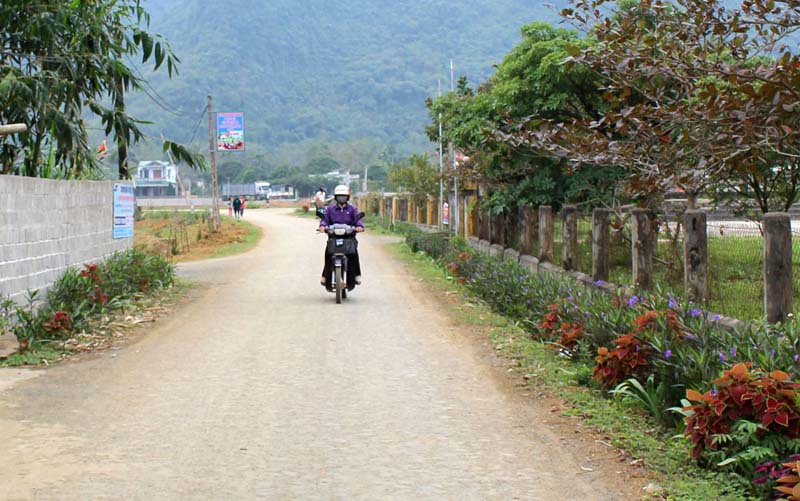



Village roads, lanes of Tan Thanh hamlet, Yen
Tri commune (Yen Thuy) are hardened, facilitating the trade and travel in the
whole commune.
Being a pure agricultural village, Tan Thanh
not only looks forward to rice, but also the movement of the mixed garden
improvement is developed and widely expanded. Besides the area of more than 4
hectares of oranges and pomelos, most of the village's cultivation land has
been covered green of corns, sugarcanes and vegetables with the area of about 6
hectares all around the year. Recently, many households have boldly grown
chilli, winter stomach cucumbers to increase their income. The ponds and lakes
have also been contracted by farmers to raise fish. With the industriousness
and the willingness, they have actively applied the scientific and
technological advances to production, the average income per capita of the
village always stands at the top of the commune. In 2017, the average income
reached 28 million VND a person, by 2018 it reached 30 million VND a person,
the poor households reduced to six ones only.
Thanks to the stable economy, people's
material and spiritual lives are increasingly improved. There are 134
households with 503 people in the village. Muong ethnic people living in the
area account for over 70%. Over the past years, people have actively
participated, supported and contributed to the movements and activities in the
locality, especially in the implementation of the campaign "All people
unite to build new rural areas", the movement "Together to build new
rural areas", hardening the rural roads and so on. The village has
hardened the lane axis of the hamlet and branch roads to the most remote
households with about 5.5 km, ensuring that 100% of the rural roads has been
concreted and asphalted. There are no muddy roads. The socialization work has
received the response and consensus of the people. They are ready to donate the
land, money and materials to upgrade, renovate and build new civil works and
welfare works. From 2011 by mobilizing people's resources, billions of
Vietnamese dongs have been collected to build the cultural houses, the village
gates and the rural roads.